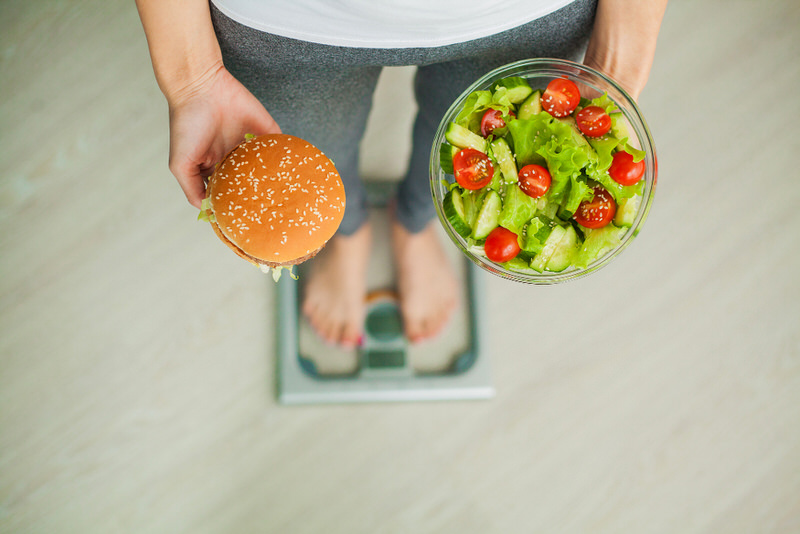Fad diets can often try to trick you into a fake and dangerous trend of dietary plans, while low-calorie diets are something that can provide genuine results. Identifying fad diets is easy as anything that offers an easy way out without exercise and usually sounds a bit far-fetched can be a fad diet. Although some medically supported fad diets do guarantee results, such as the famous Atkins diet, you can always resort to alternative healthier methods like exercising and lowering your food intake.
Advertisement companies use many tactics to influence you into buying their product. This is why you should always be cautious about what goes into your body, especially when it’s a dietary food.
This article will give you a clear idea of what to trust and what to stay away from when it comes to burning up calories and losing weight or even putting on muscle.
What is a fad diet, and how is it different from a low-calorie diet? What kind of risks do fad diets have? How do you identify a fad diet? Are there fad diets that can work out well? Are there better, healthier ways of cutting off calories than resorting to a fad diet?
What is a fad diet and what is a low-calorie diet?
A fad diet is somewhat of a trendy weight-loss plan that almost dramatically guarantees its results.
Most of the time, these diets aren’t healthy, and as soon as you give up, all that weight you lost will catch up to you. Some of these diets can even put your health at risk.
It might surprise you but often, fad diets turn out to be a way of tricking you into falling for a trend. These trends are created for the commercial gain of various products.
A low-calorie diet is usually a clinically supervised diet containing low calories to make sure you can lose your excess weight faster.
If you follow an extremely low-calorie diet, this can be unbalanced and cause problems to your health.
A fad vs a low-calorie diet

To understand how a low-calorie diet would always be the better and safer option out of the two, take a look at the table given below.
| Fad diet | Low-calorie diet |
|---|---|
| This is usually a marketing ploy sponsored by companies to start a trend and does not have your best interests at heart. | This can genuinely work out well if you follow your diet properly and without overdoing it. |
| As soon as you stop, you will probably spiral back to your initial weight. | You can expect the results to last which will motivate you to continue. |
| This can be dangerous to your health in the long run. | You will notice better results with time. |
| Easy and quick weight loss strategies are mostly unreliable, and “destined to fail”, according to nutrition experts. | These are reliable, simple to practice and has produced good results with no negative side effects as shown in a 2002 study. |
| They can be expensive with negative results. | Inexpensive with positive results. |
| Some fad diets cut out entire food groups. | You can have a balanced diet as long as you don’t overdo it. |
Mind you, very low-calorie diets may turn out to be just as bad. If you restrict your nutrition intake too much, you might be putting yourself at risk of slower metabolism, gallstones and you might even lose your mental edge.
This is because your brain runs on glucose, and if you’re hungry all day, your body can’t function at its full potential.
How can I identify fad diets?
It’s very easy to spot a fad diet. It has obvious red flags, and if you see a diet that hints at any of these following qualities, you better steer clear of it.
- Promises a quick fix – If any diet promises you a fast weight loss plan, it is most probably advertised in that way to grab your attention. Be careful not to be tricked by such ploys.
- Promotes the idea of a ‘magic food’ – There is no such food combination that would create a magical cure for weight loss.
- Restricts entire food groups – Doing this will make your body develop several nutritional deficiencies which can never be good for your health.
- Claims based on a single study – A single study is never good enough to back up an entire diet. This is seen to be used mostly to convince you that the fad diet works.
- Strict rules on weight loss – You should never follow rigid dietary plans as they could be harmful to your long-term health. You must always be flexible in adjusting your diet to maintain a proper balance between dieting and health.
- Temporary diet plans – If the diet promises to achieve your weight-loss goals within a few weeks or months, it is most definitely unachievable and just a luring technique.
Are there fad diets that can work out?
Some fad diets do produce a positive result and are not merely a marketing ploy.
- The Atkins Diet – This diet claims to produce a rapid weight loss without going through hunger. It had 4 stages, which started with a 2-week induction phase by restricting carbs to 20g daily. However, it allows any amount of protein and fat intake during that phase. By doing so, the body starts to convert fat into ketone compounds and uses this as an energy source. A 2005 study showed that the Atkins diet, when compared with other diets, has proven itself to be more effective in weight loss.
- The Vegan Diet – This can be unbalanced because of the lack of animal products. However, whole-foods based vegan diets have a better effect on weight loss and can even lower the risk of heart disease. A 2007 study on 64 overweight elder women showed that the ones who had a vegan diet lost almost 4 times as much weight when compared to the ones that ate a low-fat diet.
- The Paleo Diet – This diet restricts many food varieties such as legumes, grains, and dairy. Yet, it is stated that this diet is balanced and healthy. It can be proven through a 2013 study, where 10 obese women who had taken the paleo diet lost 4.5kg and also had a 49% reduction in liver fat.
Are there healthier ways to cut off calories?
If you don’t want to restrict your food intake because of a diet, you don’t have to. There are always many alternate options that you can explore.
Daily exercise and sport will help you burn off your extra calories. Cycling, kickboxing, running, and swimming are sports that can work out your body and burn up the most calories.
You can even try out the elliptical and switch it up by pedaling it on the reverse, which will help you work out more muscle groups.
Simple changes you make to your food choices could make a great improvement as well. For example, you could replace your daily snack with a fruit snack. Choosing fruit over processed snacks and candy will help you cut off unnecessary calories while giving your body important nutrients.
Picking out whole grain bread, pasta, brown rice, and high-fiber cereals are also a better choice over refined grains like cookies and pastries.
Picking lean proteins could also help you cut off a few calories. Food products like chicken, fish, turkey, beans, tofu have lower fat amounts than other proteins.
Instead of having to completely cut off your favorite meals, you can also simply watch your portion sizes. By replacing a large meal with a regular-sized portion can make all the difference. And simply by avoid eating after you feel that your hunger is satisfied.
By following the above methods, you can safely cut off your calories without having to burden yourself with highly restrictive fad diets and excessively low-calorie diet plans.
Conclusion

There is a thin line between eating healthy and having an eating disorder. Relying too much on fad diets may result in a condition called orthorexia.
This happens if we let our tendency to control the types of food we eat become too central in our life. In the long run, it could also affect your mental health rather badly, which is why we need to draw the line to not overly restrict our food intake, especially since it is not the only option we have.
A low-calorie diet, on the other hand, simply means a diet with lesser calories than usual.


